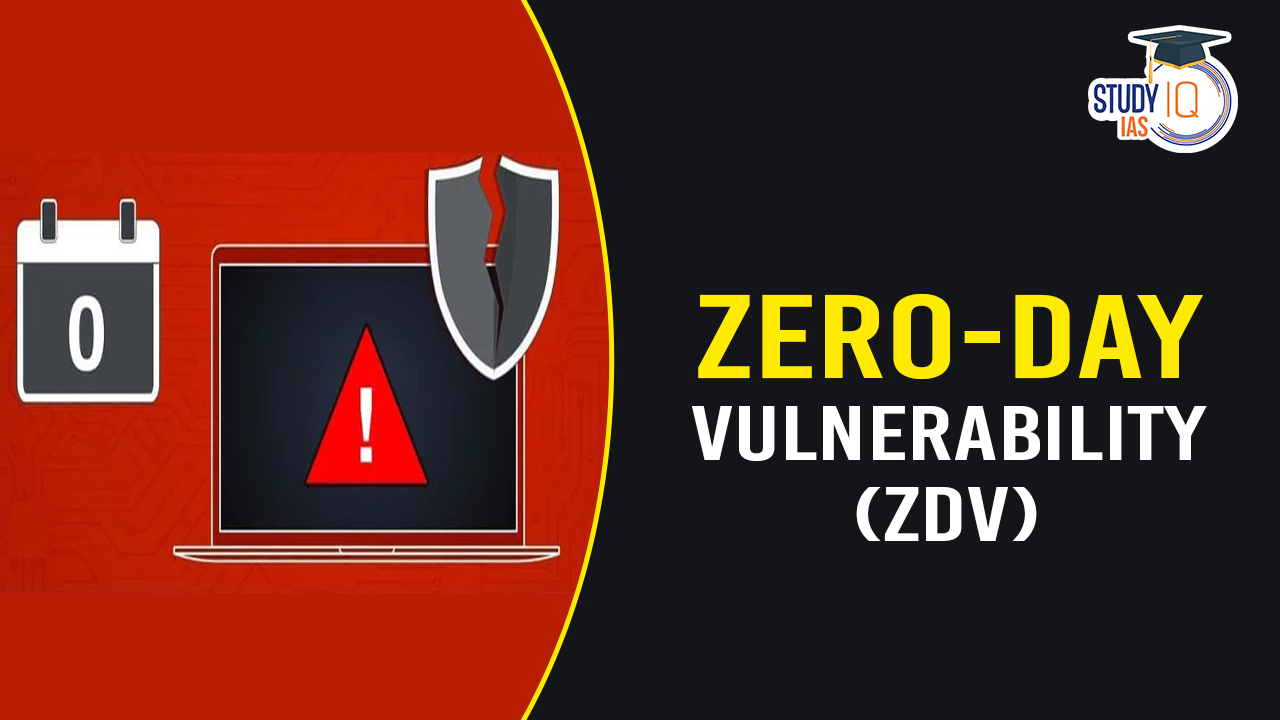Table of Contents
Why In News?
Google has issued a security update for Chrome to address a zero-day vulnerability that was actively being exploited.
What is Zero Day Vulnerability?
- A zero-day vulnerability is a previously undiscovered flaw in software or operating systems.
- The term “zero-day” indicates that developers have no prior knowledge of the flaw, leaving them no time (zero days) to fix it before it can potentially be exploited.
- A zero-day vulnerability, also written as 0-day vulnerability, is a critical gap in the security of software, hardware, or firmware that attackers can exploit before the software vendor or manufacturer knows about it and releases a patch to fix it.
Definition of Zero-Day Exploit
- A zero-day exploit is a cyberattack that takes advantage of a zero-day vulnerability.
- Such exploits can be used by malicious actors to deploy malware, steal data, or cause other types of damage to users or systems.
Severity of Zero-Day Vulnerabilities
- Zero-day vulnerabilities pose significant security risks, especially when they affect widely-used systems or software.
- They expose a large number of users or entire organisations to cyber threats until the vulnerability is recognized and remedied.
Concept of Zero-Day Malware
- Zero-day malware refers to viruses or other malicious software whose signatures are not yet known or available.
- As a result, this type of malware often goes undetected by traditional antivirus programs or signature-based security measures.
How Zero-Day Vulnerabilities Occur?
- Software Development Gaps: These vulnerabilities can arise due to errors or security weaknesses during the software development process.
- Targeted Attacks: In some cases, attackers may discover and exploit these vulnerabilities before anyone else.
Examples of Zero-Day Exploits
- Spreading Malware: Hackers can use zero-day vulnerabilities to install malware on victim systems.
- Data Theft: Zero-day attacks can be used to steal sensitive data from individuals or organizations.
- Disrupting Operations: In some cases, attackers may exploit these vulnerabilities to disrupt critical systems or infrastructure.
Protection Against Zero-Day Attacks
- Security Software: Keeping security software like antivirus and anti-malware programs up-to-date can help mitigate some zero-day attacks.
- System Updates: Patching operating systems and applications promptly whenever updates are available is crucial.
- User Awareness: Educating users about cyber security best practices, such as being cautious about suspicious links and attachments, can help reduce the risk of falling victim to a zero-day attack.
Importance of Zero-Day Research
- Ethical Hacking: Ethical hackers (white hats) sometimes discover zero-day vulnerabilities and responsibly report them to software vendors to be patched before they fall into the wrong hands.
- Security Software Development: Understanding zero-day vulnerabilities helps security software companies develop more robust defenses.


 UDAN Scheme, Objectives, Funding and Ach...
UDAN Scheme, Objectives, Funding and Ach...
 Top 10 Economies in the World 2025, Chec...
Top 10 Economies in the World 2025, Chec...
 Indus Water Treaty 1960 Suspended by Ind...
Indus Water Treaty 1960 Suspended by Ind...





















